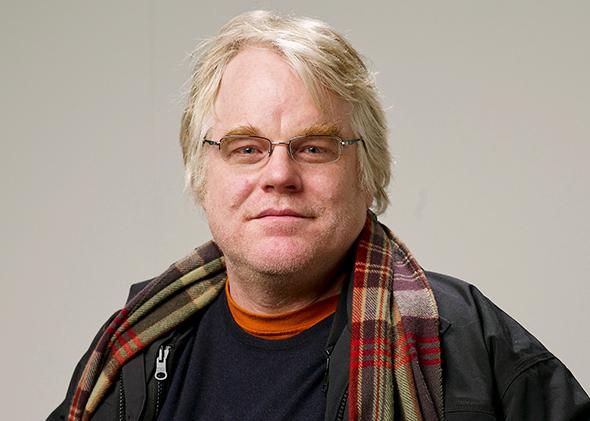This is about the time Philip Seymour Hoffman got that part I auditioned for.
In 1999 I read for the role of Gene in Richard Greenberg’s The Author’s Voice, a one-act Cyrano pastiche about a young playwright, his female editor, and the “horribly twisted gnome” who lives in his closet and ghostwrites his plays. (It was part of an evening of one-acts presented by Drama Dept.) Gene the Gnome seemed a natural for me; I prided myself on having a corner on weirdo intellectual outcasts. After more than a decade of off-off-Broadway and day jobs I’d had a career breakthrough in ’97 when Hal Hartley cast me as weirdo intellectual outcast Simon Grim in Henry Fool. I walked into that audition feeling very good about myself.
It went great. There were gales of laughter at the wry spin I put on the lines. There was an equally successful callback. I was sure the part was mine. And then, the inevitability familiar to so many young New York character actors of the 1990s:
Phil Hoffman got it.
Jesus. He’d already robbed me of the role of Masturbating Obscene Phone Call Guy in Todd Solondz’s Happiness the year before, and had even earned himself a Daniel Clowes caricature on the poster. Now he had to swoop in and steal a part from me in a two-week run of one-acts on Barrow Street? I went to see the show and settled resignedly into my seat.
The play begins with a scene between the playwright and the editor. At the end of the scene, the editor leaves and, as per the stage directions, Gene enters from the closet, crosses to the playwright’s desk and plops down a new manuscript. I watch as the editor exits and the closet door opens.
Philip Seymour Hoffman enters.
He is on the floor, crawling. Army style. Pulling his weight towards the desk. It takes time. His breathing is labored. The energy in the theater has changed. You can feel the audience adapting to the force that has just been introduced. The force emanating from a prone man pulling his big body across a small off-Broadway stage. He’s a big man and his presence is big, theatrical. But also subtle, inward. It rings true. This silent entrance contains a physical intensity and emotional depth that is nowhere near what I had done in my audition. And I am struck by the alarming realization that it’s highly unlikely I ever would have gotten there.
Gene reaches the desk and plops down the manuscript. Blackout.
I’ve reflected on so many of his performances through the years, but this entrance remains for me a touchstone, a lesson, a perfect distillation of Phil Hoffman’s acting. Its mix of bold theatricality and naked vulnerability. (Charles Laughton, with his West End bravura married to pre-Actors Studio emotional realism, is the Great One he most reminds me of.) I can’t tell you how many times while preparing a role I’ve checked in with that initial appearance of Hoffman’s gnome. A (30-second?) master class in committing, digging deep, raising the stakes, going further. In an alternate universe, my Gene may well have succeeded on its own terms. But I’m better for seeing Phil Hoffman’s.
See more of Slate’s coverage of Philip Seymour Hoffman.
